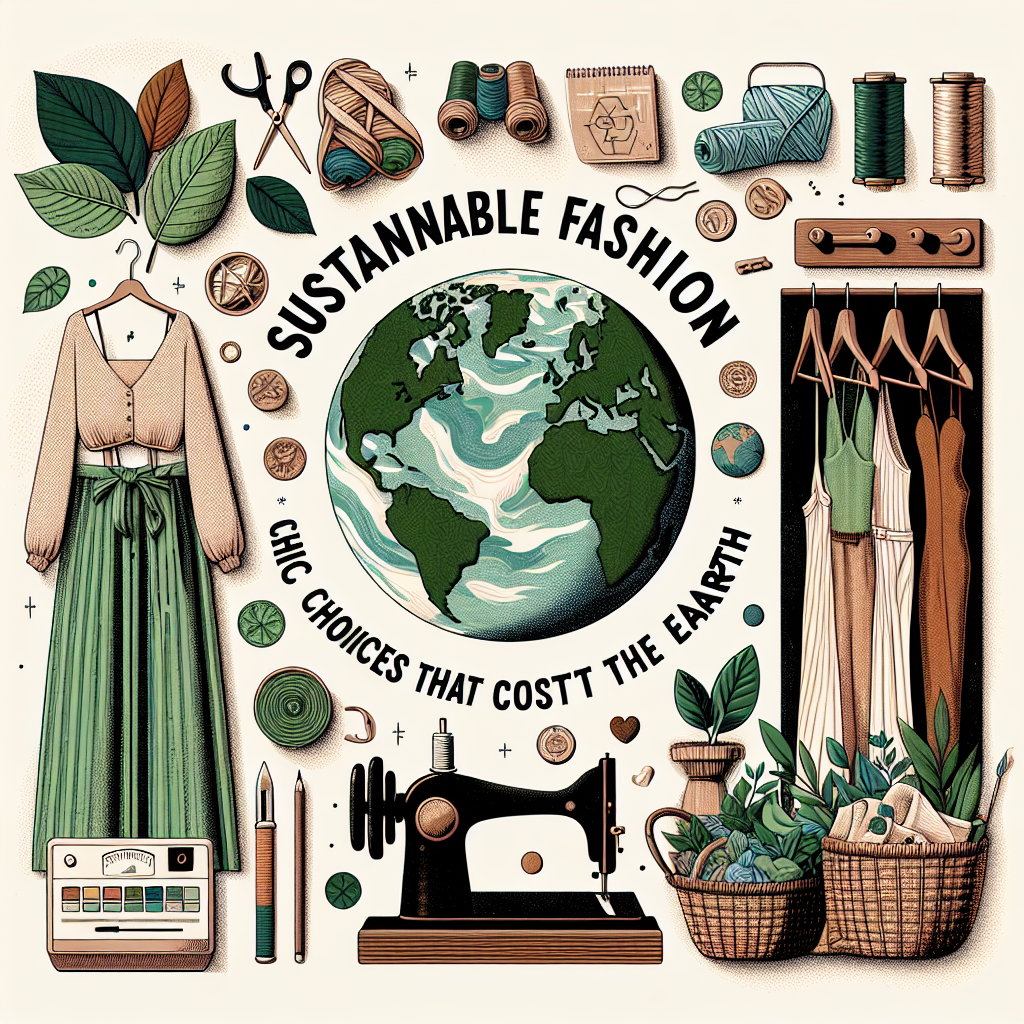In an age where fast fashion dominates the retail landscape, sustainable fashion emerges as a beacon of hope for eco-conscious consumers. Not only does it address the pressing environmental issues posed by the fashion industry, but it also offers stylish solutions that don’t cost the Earth—literally and metaphorically.
The Ethical Imperative
The fashion industry is one of the largest polluters in the world, contributing immensely to waste and environmental degradation. Sustainable fashion champions ethical practices, encouraging brands and consumers alike to make choices that favor people and the planet.
Key Principles of Sustainable Fashion
-
- Eco-Friendly Materials: Natural or recycled materials that reduce environmental impact.
-
- Ethical Production: Fair labor practices and safe working conditions.
-
- Transparency: Brands that openly communicate their production processes and supply chains.
-
- Timeless Design: Investment pieces that transcend trends and can be worn for years.
Chic Choices for the Style-Conscious
Choosing sustainable fashion doesn’t mean sacrificing style. In fact, with a bit of creativity, you can find chic options that elevate your wardrobe while being kind to the planet.
1. Thrift and Vintage
One of the easiest ways to shop sustainably is by visiting thrift stores or vintage shops. This not only gives garments a second life but also opens the door to unique, one-of-a-kind pieces. Plus, you’ll be saving money while reducing waste.
2. Capsule Wardrobe
Creating a capsule wardrobe—curating a small collection of versatile pieces—can simplify your life and style. Focus on high-quality, timeless items that mix and match seamlessly, reducing the need for frequent purchases.
3. Sustainable Brands
Many brands are now dedicated to sustainable practices. Look for labels that prioritize eco-friendly materials, ethical labor, and transparent production. Brands like Everlane, Reformation, and Patagonia consistently push the envelope on sustainability.
Conclusion
Embracing sustainable fashion is not just a trend; it’s a lifestyle choice that reflects a commitment to the environment and social responsibility. By making informed choices and supporting ethical brands, we can all play a part in creating a more sustainable future—without compromising on style.




